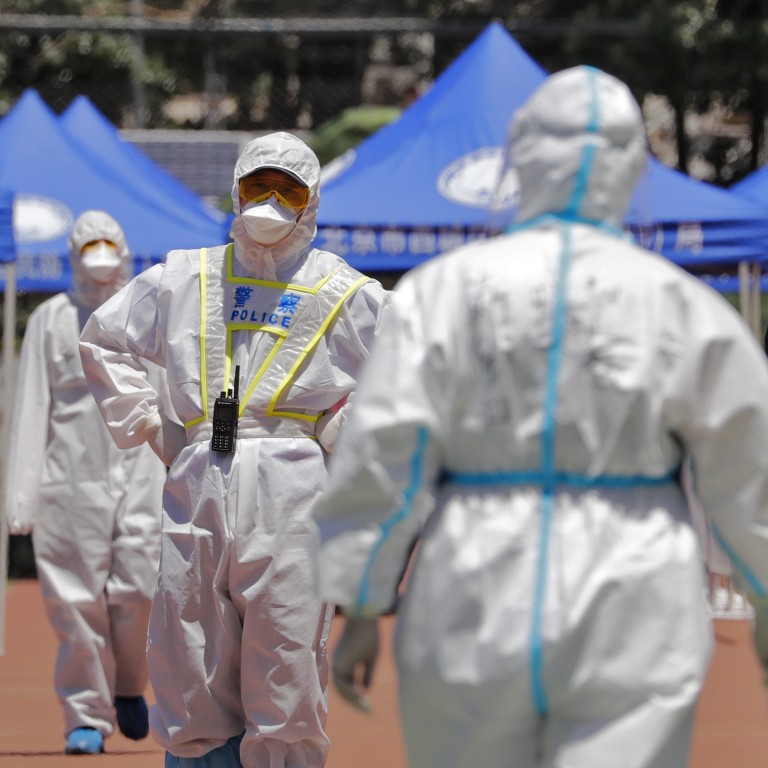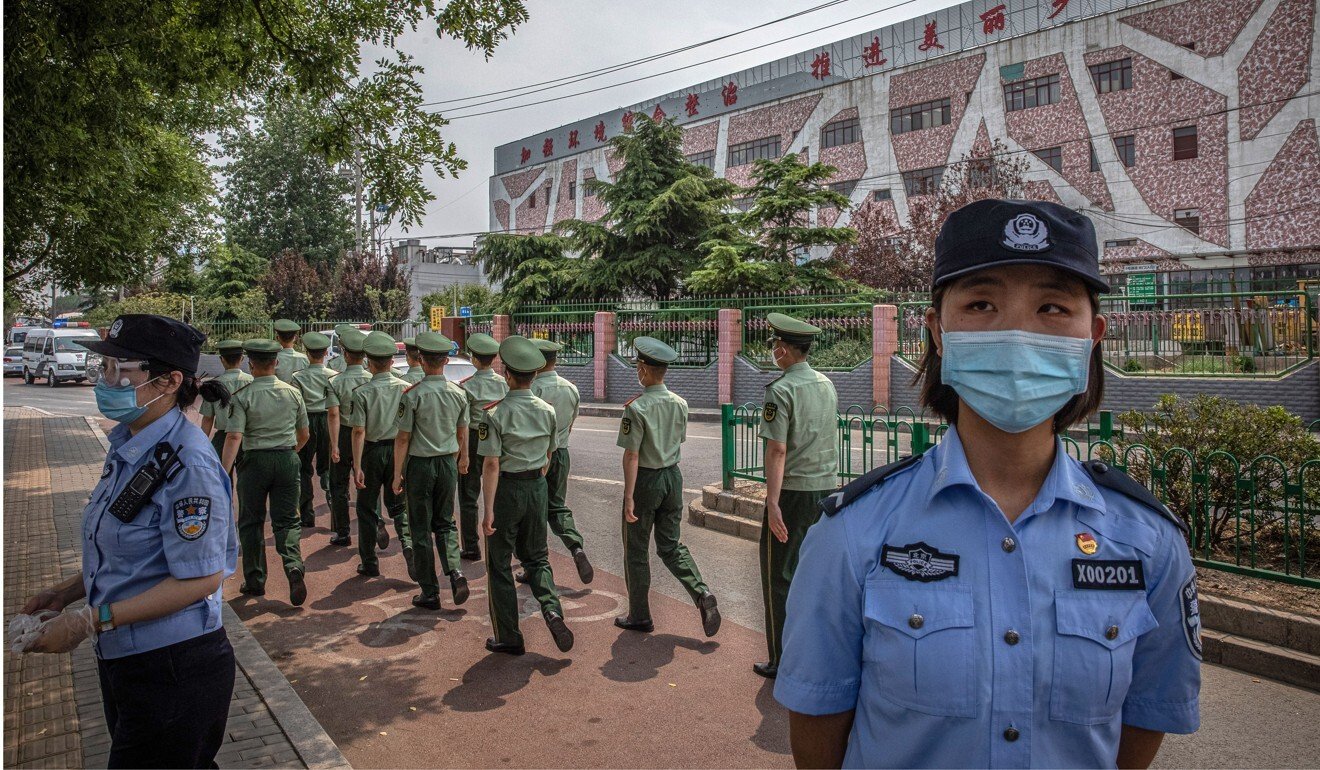
Coronavirus: outbreak at Beijing food market fuels fears of second wave
- Capital has confirmed 51 local cases since Thursday, including 44 on Saturday and early Sunday
- Many more cases could be going undetected in the capital, public health expert says
Out of the blue, a rush of coronavirus cases of unknown origin struck Beijing on the weekend, pushing new cases in the country to a two-month high.
The fresh outbreak in the nation’s capital came as a shock, with President Xi Jinping last month applauding the country’s efforts to turn the tide of the epidemic.
Ben Cowling, professor and head of epidemiology and biostatistics at the University of Hong Kong’s school of public health, said he believed that this was the start of a second wave of coronavirus in the capital.
“I think there must be many more infections in Beijing which are not yet detected,” Cowling said.

04:00
Beware of the potential for a second Covid-19 wave, Zhong Nanshan warns
The outbreak appears to have started in the Xinfadi market in Fengtai district, though the cause has not been determined. It also is eerily similar to the initial outbreak’s suspected origins in a live animal and seafood market in Wuhan, Hubei province, late last year.
Analysts said the crop of new cases was a warning that continued strict vigilance throughout the country was necessary to prevent further infections.
“Definitely the whole country was starting to loosen up” on preventive measures, said Jia Ping, executive director of the Health Governance Initiative, a think tank in Beijing. “We shouldn’t expect zero cases. The virus as part of our daily life is the new normal.”
This time, authorities were quick to close the Xinfadi market and lock down adjacent neighbourhoods. The government said that about 46,000 residents near the market would be tested for the coronavirus, and samples had already been taken from more than 10,000.
Several districts in the city also raised their alert status and cancelled large public events scheduled for Monday.
The 36 cases reported on Saturday comprised 27 people who worked at the market and nine who had been “exposed” to it, the municipal government said.
Another person had also tested positive for the coronavirus but showed no symptoms, it said. In China, asymptomatic patients are not included in the total of confirmed cases.
Of the further eight cases reported on Sunday morning, three worked at the market, three had visited it and one was a relative of a reported case. How the eighth person contracted the virus is still under investigation.
For the country as whole, there were 57 new confirmed coronavirus cases in the 24 hours to midnight Saturday, the National Health Commission reported, the biggest one-day total in two months. Some 38 of the new cases were locally transmitted, including the 36 in Beijing, with the other 19 were travellers arriving from abroad.
A spokesman for the Beijing health bureau urged anyone who had visited the Xinfadi market since May 30 to report to the government so they could be tested.
The seven people who tested positive earlier in the week had all visited the market.
Coronavirus: China suspends flight after 17 passengers test positive
Authorities have also closed the Jingshen wholesale seafood market, which was visited by the first of the latest patients to test positive.
Authorities said samples collected from the Jingshen market and the Yuegezhuang centre, another major market, had all tested negative so far.
The government said earlier that health workers detected the virus in 40 samples collected at Xinfadi, including from cutting boards used to prepare imported salmon.

In an article published on the website of the Central Commission for Discipline Inspection on Sunday, Wu Zunyou, the chief epidemiologist at the Chinese Centre for Disease Control and Prevention, said the source of the latest outbreak could be either contaminated seafood or meat from the market, or a visitor or worker who had contracted the virus unknowingly.
“Judging from the circumstances in Beijing now, it’s more likely to be the first scenario,” he said.
But identifying the virus on cutting boards used to prepare salmon did not necessarily mean the fish were the source, Wu said.
Hong Kong mulls easing social-distancing rules, no new infections
“Any person or object that has been in contact with the board could be the source.”
It was also possible that the owner of the cutting board or even a customer had transmitted the virus to it, he said.
“We are still collecting information and we can’t give a conclusion now,” he said.

Since the new local case was reported on Thursday many mainland cities have been on high alert for visitors from Beijing. Some have even ordered people travelling from affected areas of the capital to go into isolation for 14 days or have nucleic acid tests.
After five days driving 3,000km, Fu arrived with his wife and son in Hami, the eastern gateway to the autonomous region, on Saturday, only to find out a new control measure had been introduced.
“At the checkpoint, I was told that if you had been to Beijing since June 1, you had to be quarantined for seven days,” he said. “I didn’t want to end a 3,000km drive in a quarantine hotel, so we left.”
Fu said three police cars escorted him and his family for 220km back to the provincial border, and the “shortest road trip ever in Xinjiang” was over.
“We didn’t even have time to eat a lamb kebab,” he said, referring to a speciality of the region.
For several months before the outbreak in Beijing, China had been dealing mostly with coronavirus cases imported from abroad, with the exception of a handful of local cases in the northeast of the country.
As of midnight on Saturday, the country had 129 active cases, of which 83 were imported, the National Health Commission said.
Additional reporting by Guo Rui and Kinling Lo

